26/10/2016
A homemade rice dish prepared with passion and delicateness
Deprecated: Function get_magic_quotes_gpc() is deprecated in
/var/www/vhosts/culleradeboix.com/httpdocs/wp-includes/formatting.php on line
4387
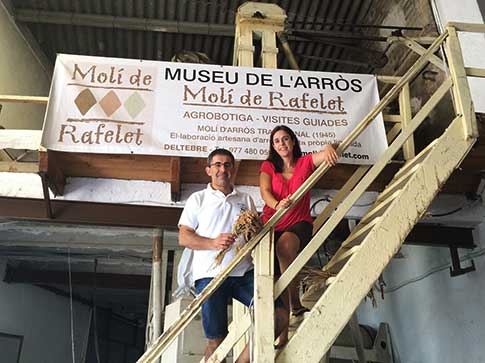
By: Cullera de Boix
The quality seal of the paellas at Cullera de Boix, the best restaurant of rice dishes in Barcelona, is obtained thanks to the selection of rice from Molino de Rafelet, in the Deltebre region, as its main provider. It is a century-old family business that produces rice in a wooden mill, the only one still operating in Catalonia and throughout Spain.
When Rafael Margalef started to produce rice, around 1910, he probably never imagined that his landmark way of producing rice would still be alive a century afterwards. Or, rather, he never imagined that it would be the only one remaining in the whole territory to produce some of the finest gourmet rice in the country.
Molino de Rafelet, hand-built by a carpenter from Amposta, became a reality in 1935, when the founding grandfather entrepreneurially launched his idea of producing rice, removing the grains from the skin to package them and selling the product. And he did so with a distinctive “homegrown” sign, which is maintained at present and ensures that the product is considered so-called “zero kilometre”, that is, local produce.
Molino de Rafelet is the only one remaining in the whole territory to produce some of the finest gourmet rice in the country
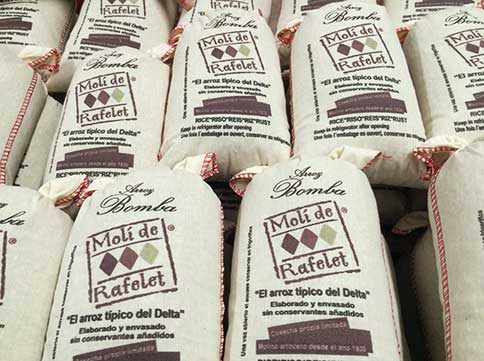
“It is a pleasure to work with what you like, as you preserve family history and, moreover, contribute to keeping alive the rice-growing tradition in the village”, Teresa Margalef says, who along with her brother, Rafael, is the owner and runs the company founded by their grandfather.
Traditional rice production since 1935
The siblings are the third generation of Molino de Rafelet, the only wooden mill operating in Catalonia and Spain, which traditionally processes rice in a non-automated mill. The equipment is located within a hall, in the Deltebre region, which is a workplace, a shop, where products are sold, as well as a museum.
The Regional Government of Catalonia has honoured them with this concept since 2008, so that the very siblings offer a guided tour to explain the operation and history of the company to visitors who request it.
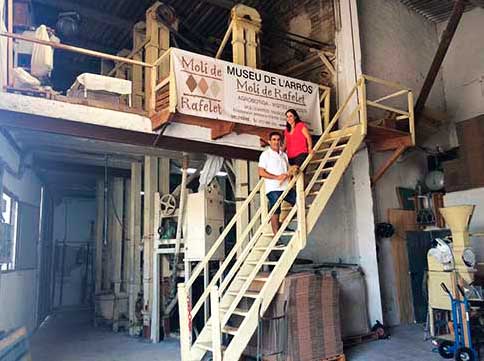
“The secret, besides processing it in a wooden mill, lies in the rice processing by sieving the shell by hand”, Rafael explains, while showing the special bags with the rice reserved for grinding throughout the year. No preservatives are used; thus, rice is vacuum-packed and put in a cloth bag. An option that guarantees “the usual rice texture and flavour”, Teresa says.
Own, limited rice harvest
However, it is not only this that makes them exceptional: “The key is manually drying rice in the sun, as we do, on the very plot, during the month of September at the time of traditional harvest. As well as careful selection of the land where we plant rice”, Rafael explains, now, on the field, showing step by step which are the plots where the Molino de Rafelet rice comes from.
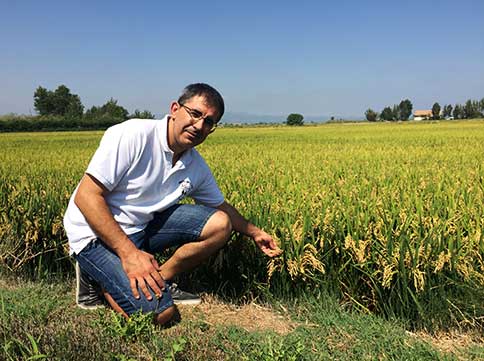
In fact, they work with some twenty farmers, in addition to the company-owned land, all of them located around the Deltebre region. “Much of this land has been made up of the same high-quality fields for centuries, where, thanks to their proximity and our knowledge, we can see how the crop grows in order to assess first-hand, if it is a good one or not”, the co-owner of the company explains.
From these fields they get a 100,000-kg rice production in one go, which is relatively low, when compared to large companies, but ideal for ensuring a quality product that is traditionally processed. They sell it mainly to restaurants specialising in rice dishes, such as Cullera de Boix in Barcelona,apart from others of the Ebro region, in shops and gourmet spaces, as well as in their own gourmet shop they have on the mill premises.
Sushi rice
One of the matters is to know how a diner can tell if the rice is a quality product. For the owners of Molino de Rafelet, this is crystal clear. “The fact that it all belongs to a similar crop and has been sieved manually makes rice cooking shorter and more uniform. This allows paellas to turn out much better, as the broth is correctly absorbed and the rice grain remains more intact, with a more palatable texture”, Rafael says.
The fact that it all belongs to a similar crop and has been sieved manually makes rice cooking shorter and more uniform. This allows paellas to turn out much better.
As a sign of entrepreneurship, the Margalef siblings analyse the varieties that are best suited for each type of rice you may cook.
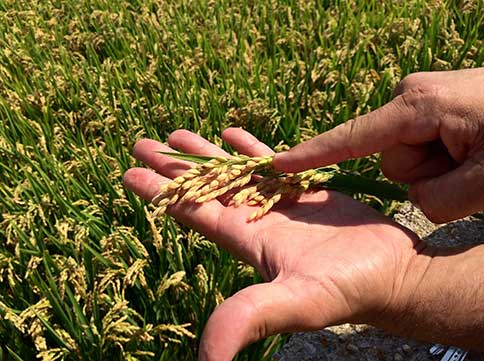
Thus, Molino de Rafelet offers several varieties from classic “short-grain” rice for paellas, “marisme” rice to make soupy rice dishes, “carnaroli” rice to prepare risottos or even a variety of “sushi” to make traditional Japanese dishes. They also have other varieties, such as organic and Gran Reserva rice.
Rice is also drunk with Theresa beer
Now, their desire to link tradition with present time does not end there. They also offer Theresa beer, made with rice, malt and hops. It is a light beer, but with character, featuring 5.3 degrees.
“You do it for the passion of working on something you like, for the family legacy and for the product delicateness.”
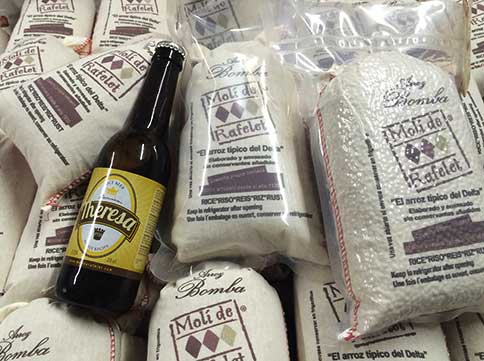
“It is a tribute to all women of the Ebro region who have worked on the fields, totally muddy while rice planting and harvesting. For their strength and the double work days they have endured historically, at home and on the field, always invisible”, Teresa says.
Fourth future generation
The story to recover the mill has not been easy. 15 years ago both siblings, an economist and an engineer, decided to give the mill another chance. They restored and adapted it to current needs, without any help from the government.
They do not want to call it success, but rather confidence in the future. “Handcrafted goods are very hard to achieve; for instance, it would be easier to dry rice industrially, but, in the end, you draw a balance, and it is worthwhile”, Rafael says, whereas Teresa adds: “You do it for the passion of working on something you like, for the family legacy and for the product delicateness.” A legacy that will persist, we do not know if this will happen together with the mill, but with the family history, thanks to the fourth generation with little Tesa.
From Deltebre to Cullera de Boix
The rice tradition of Molino de Rafelet, which Teresa and Rafael explain first hand, introduces visitors to the artisan and cultural tradition of producing rice in the Ebro delta and to a world of culinary sensations and of the unique flat landscape of the area.
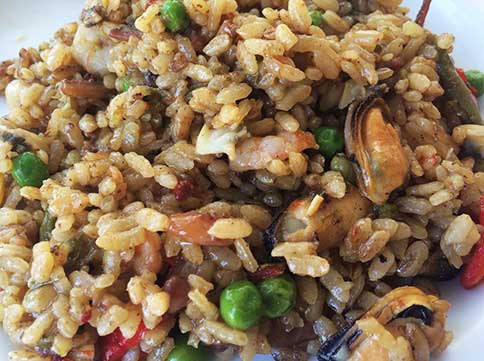
Flavours and smells that those who cannot go to the Deltebre region can taste in a good paella made with this rice at one of the three Cullera de Boix restaurants located in downtown Barcelona.
More information Molino de Rafelet
Make a reservation to Cullera de Boix, the best paella’ restaurant in Barcelona.








